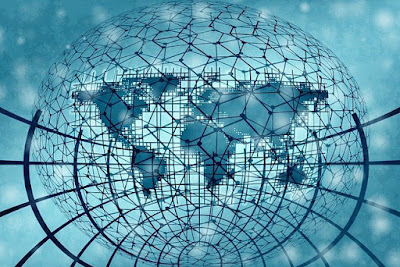The Essence of Innovation in Education and Economic Development
Innovation Creativity of Educational Economic Advancement enhance with respect to the Economic Significant Rapid Productivity in Competencies era of Modern Technological Formations. As we Navigate a world that is rapidly changing—due to Advancements in Technology, Globalization, and Shifting Workforce demands—our approach to Education and Economic Development must evolve Accordingly. At the intersection of these two areas, innovation acts as a potent Catalyst, Fostering creative Solutions, Enhancing Learning Experiences, and preparing Students for the Complexities of the Future Job Market.
In this Post, we will Examine the essence of Innovation within Educational Systems and its broader Economic implications, emphasizing the factors that combine to create effective, forward-thinking Educational Frameworks.
Understanding the Role of Innovation in Education
When we talk about innovation in education, we refer to the adoption of new methods, ideas, or products that improve teaching and learning processes. This innovation can take many forms, from integrating technology into the classroom to reimagining curricula that align more closely with industry needs and student interests. The goal is to cultivate an environment that not only enhances knowledge acquisition but instills critical thinking and adaptability—skills that are paramount for success in the 21st century.
One of the most significant revolutions in education has been brought about by technology. Digital learning platforms, virtual classrooms, and interactive educational software have transformed the way information is disseminated and absorbed. Online learning opportunities allow for greater access to resources, enabling students from diverse backgrounds to gain knowledge and skills that can translate into economic opportunities. Globalization and technology have made it feasible for students to learn from leading experts worldwide, breaking geographical barriers and promoting an inclusive educational environment.
Economic Factors and Their Relationship with Innovation
The relationship between educatio
n and economic development is reciprocal and symbiotic. A robust educational system serves as the backbone of a nation’s workforce, and a skilled labor force is essential for fostering economic growth. In an increasingly interconnected world, employers seek employees who not only possess technical skills but also demonstrate creativity, problem-solving capabilities, and a willingness to learn.
Moreover, innovation in education can help stimulate local economies. As educational institutions embrace creative teaching methodologies and prepare students for emerging industries, they create a workforce that drives productivity and innovation within those sectors. This is particularly crucial in areas like technology, healthcare, and renewable energy—fields poised for significant growth. By equipping students with relevant skills, educational institutions can attract businesses looking for a well-trained pool of talent, thereby enhancing economic prospects for entire communities.
Key Factors of Innovation in Education
1. Technology Integration :
Technologies such as artificial intelligence, virtual reality, and data analytics provide educators with tools to customize learning experiences according to individual student needs. This personalized approach not only enhances student engagement but also fosters a deep understanding of subject matter, moving beyond rote memorization. For example, students can benefit from using simulations to learn complex scientific principles, making abstract concepts tangible and comprehensible.
2. Collaborative Learning :
Collaborative learning environments encourage students to engage with one another, share ideas, and develop essential interpersonal skills. Group projects, peer reviews, and discussions create opportunities for students to learn from each other, fostering creativity and sparking innovation. When students work together to solve real-world problems, they develop critical thinking skills and gain a deeper appreciation for diverse perspectives, which is essential in a globalized economy.
3. Responsive Curricula :
An effective educational framework must adapt to the evolving needs of the labor market. Collaborative efforts between educational institutions and industry leaders can help ensure that curricula remain relevant, reflecting the latest trends and technologies. For instance, incorporating coding, data science, and digital marketing into educational offerings prepares students for jobs that may not even exist yet but will certainly arise from technological advancements.
4. Focus on Creativity and Critical Thinking :
Educational institutions must prioritize the development of creativity and critical thinking. Programs that encourage exploration, risk-taking, and innovative problem-solving allow students not only to grasp existing knowledge but also to push boundaries and create new ideas. Such an environment nurtures a sense of entrepreneurship among students, inspiring them to pursue their ventures and contribute to economic growth.
5. Access and Equity :
Innovation in education must also address issues of access and equity. With the rise of online education and open educational resources, there is an unprecedented opportunity to reach students in underprivileged areas who may not have access to high-quality education otherwise. By removing barriers to learning, we can ensure that all individuals have the opportunity to succeed and contribute to economic development.
Innovative Educational Practices Enhancing Economic Development
Innovative educational practices have already shown promising results in several regions. For example, coding boot camps and vocational training programs are emerging in response to a growing skills gap in technology and other sectors. These initiatives provide targeted, practical learning experiences that are often more aligned with industry needs than traditional academic pathways.
Moreover, educational institutions are increasingly partnering with local businesses to create internship programs, mentorship opportunities, and real-world project collaborations. Such relationships not only prepare students for the job market but also allow businesses to play a crucial role in shaping the talent pipeline. When companies invest in education, they are investing in their future workforce while simultaneously benefiting from fresh ideas and creativity brought in by new graduates.
The Path Forward
As we stand at the crossroads of education and economic development, embracing innovation is imperative. Policymakers, educators, and business leaders must collaborate to create a common vision for an educational landscape where creativity flourishes. By leveraging technology, promoting collaborative learning, and establishing responsive curricula, we can foster a culture of innovation that not only enhances educational outcomes but also drives economic prosperity.
Conclusion :
The Essence of innovation in Education holds the key to addressing many of the challenges we face today, from preparing for a volatile job market to fostering sustainable economic growth. By embracing innovative practices, we can transform our educational systems and equip future generations to become proactive contributors to society. The interplay between educational innovation and economic development is not just a trend; it is a necessary evolution that will shape the future of our communities and the global economy. By placing innovation at the forefront of educational transformation, we ensure that we are preparing students not just for jobs, but for life in an interconnected, complex world.
Final Thoughts
Education and economy are deeply intertwined, and as such, the drive for innovation should be a shared responsibility among educators, industry leaders, and policymakers. Together, we can create an educational paradigm that not only prepares individuals for career success but also fosters a sense of curiosity, resilience, and adaptability—a combination that is essential in tackling the challenges of the present and future. Let us champion this movement towards innovation in education and work collectively towards a vibrant and prosperous Economy.
1. Innovation in Education not only enhances teaching methodologies but also prepares students for an unpredictable future job market.
2. Economic growth is increasingly tied to a well-trained workforce that benefits from innovative educational practices and technologies.
3. Technology integration in classrooms fosters creativity and critical thinking, essential traits for success in modern economies.
4. Collaborative learning environments encourage the sharing of ideas and resources, stimulating innovation among peers.
5. Responsive curricula that adapt to industry needs ensure that education remains relevant, thereby driving economic productivity.
6. Embracing innovative techniques in education and industry-wide partnerships can lead to sustainable economic development.
---











